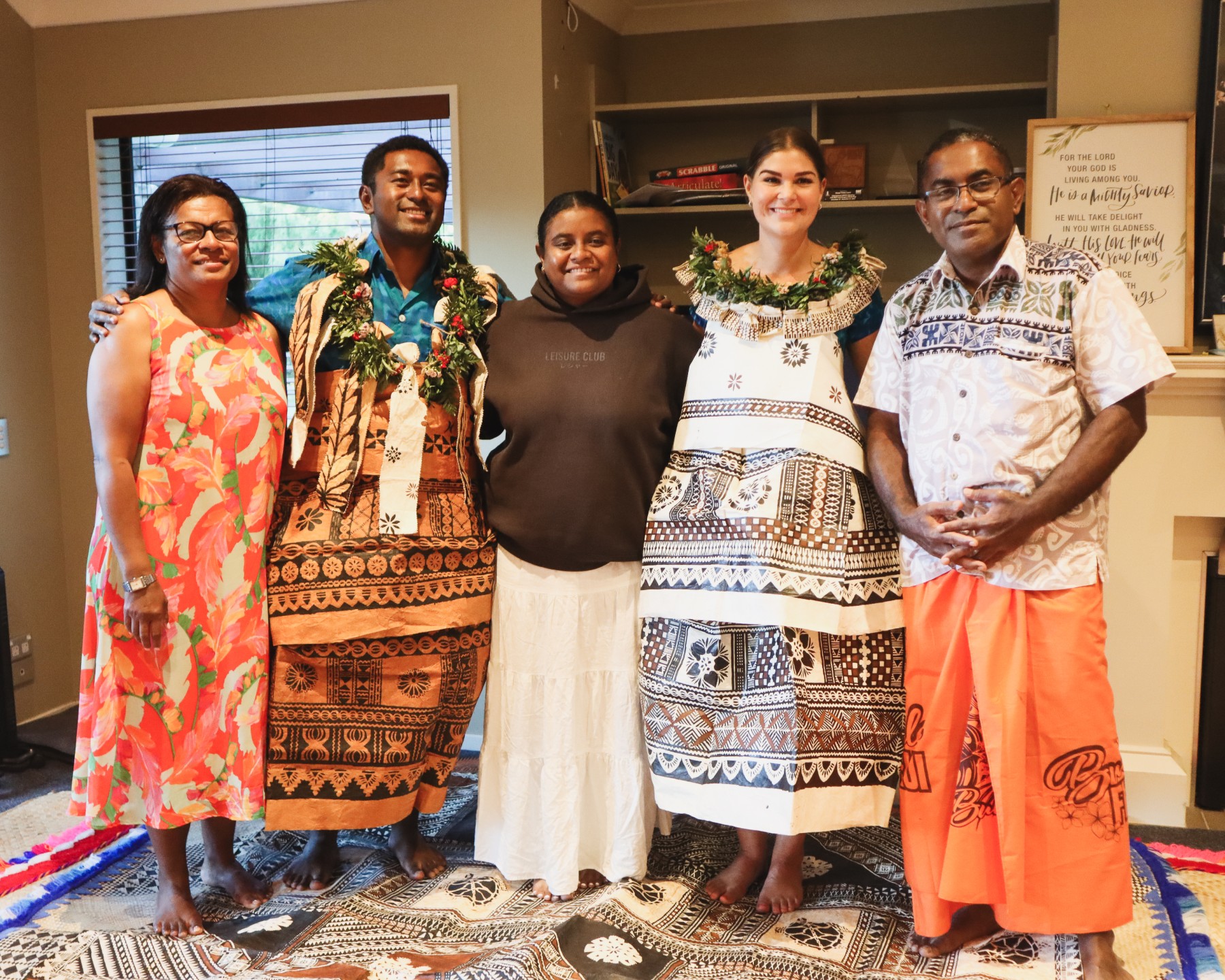I come from Nubukaluka village in the province of Naitasiri which is in the highlands of Viti Levu. I have maternal links to Galoa in Kadavu. Galoa is a small, picturesque outer island, about a 10–15-minute fibreglass boat ride from the main island of Kadavu in the south of Fiji. I am married to Dr Jitoko Cama who is from Nasau village on Moce, a beautiful island in Fiji’s eastern province of Lau. We have two children – Dr Poasa Cama and Lydia Cama. We were all born in Fiji and our family slowly moved to New Zealand to work/school from 2012. Poasa is married to Dr Damaris Dekker-Cama. Damaris is a NZ/European with maternal links to Palmerston in Cook Islands. They have a son – our first grandchild – Kelepi Conrad Cama.
Fiji has 14 provinces, and each province is included into one of the 3 main confederacies of Kubuna, Burebasaga and Tovata. My parents are from the Kubuna and Burebasaga confederacies. My in laws are from the Tovata confederacy. While Fiji has around 300 dialects, the “Bauan” dialect is considered the common Fijian dialect that is used widely.
Growing up in Fiji, it was the decision of my parents, particularly my dad, for us siblings to speak English at home. This was to address the challenge he faced in education while growing up in the village and progressing to secondary school. We were also encouraged as children to read a lot or engage in activities that helped improve our English. So, we joined the local Suva City Library and were introduced at an early age to the board game Scrabble – the adult version – which an uncle who was a university student at the time, brought home. My parents, however, spoke Bauan at home and relatives who came home to visit, spoke in their own dialects. So, while I was fluent in oral and written English, I was exposed to, understood and could converse in the Bauan dialect albeit with some challenges, and grasped the basic Naitasiri and Kadavu dialects.
In retrospect, while that decision certainly helped with the progression of my education and career, it did prove a challenge particularly when participating in traditional or cultural events or even conducting public health activities in Fijian communities. So, in the early years of our Cama family, we tried to address this as we wanted our children to be fluent in both Fijian and English. I was to speak in English to our children and Ji would speak in Fijian / Lauan dialect to them. It worked really well until our busy work schedules and postgraduate studies started.
This year’s Fijian language week theme “Na noqu vosa me na tekivu mai vale” translates to “My language starts at home”. This underpins the importance of family and the home; how many things are first taught or learnt at home and further highlights the role of parents and family elders in shaping family values – language, culture, behaviour, morals, beliefs and so on.
Moving forward, I would like to encourage children of Fijian descent in New Zealand to try and learn the Fijian language – either Bauan or their local provincial dialect. It is a part of our Fijian heritage and identity which has many benefits. In Hamilton where I live, the Fiji Society in Hamilton hold successful “Vosavakaviti Classes” (Fijian language classes) weekly and I see that as a wonderful opportunity for all interested Fijians in the area to take advantage of. It is a bit late for me, but it is something I would recommend for Fijian children & grandchildren, so our language is not lost in the future.

